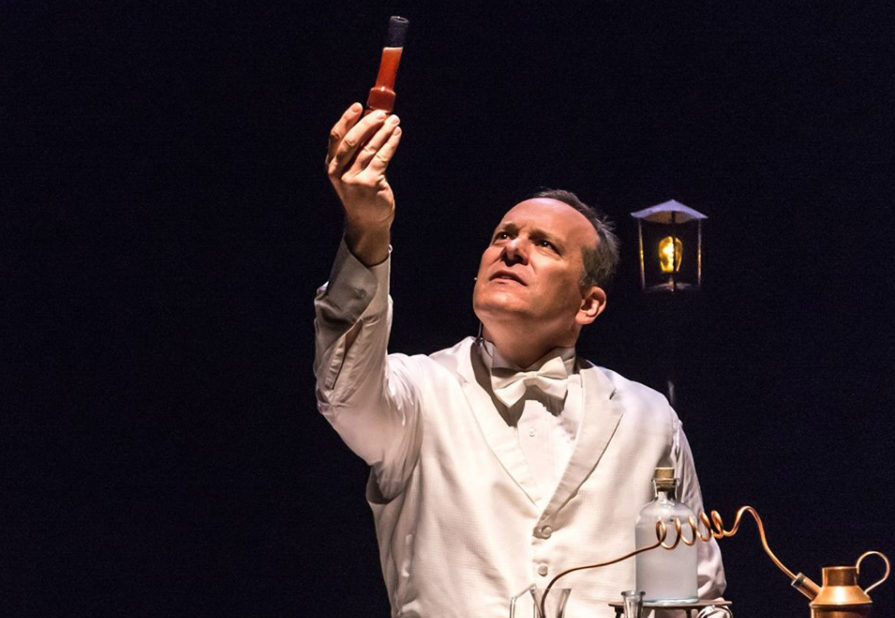A soldier, a violin, the devil and a princess are the central characters in a colorful story that will be told in words and music by members of the Vancouver Symphony and actor Kirk Mouser. They will team up for a performance of Igor Stravinsky’s “A Soldier’s Tale” this Sunday afternoon at Kiggins Theatre.
Stravinsky wrote “A Soldier’s Tale” in 1918 when he was living in Switzerland but struggling financially because of World War I. To earn some cash, he created of a mobile theater piece that could be performed in small towns and villages. Keeping things simple, he wrote a score for just seven instruments: clarinet, bassoon, cornet, trombone, violin, double bass and percussion.
Based on a folktale by Alexander Afanasiev, “A Soldier’s Tale” has a Faustian theme in which a soldier trades his beloved violin to the devil, who is in disguise, for a magical book. The soldier becomes very wealthy, but he loses his riches. In the process, he beats the devil in a card game and retrieves his fiddle, which he uses to cure an ill princess. They marry, and he drives the devil away by playing his violin. The devil warns him to stay away from his home town, but he visits it anyway, and falls into the clutches of the devil, who carries him off.
The ensemble will be led by Ken Selden, who teaches at Portland State University and directs the PSU Orchestra and its New Music Ensemble. Shelden knows “A Soldier’s Tale” well, having conducted it in New York City and at Marylhurst University.




